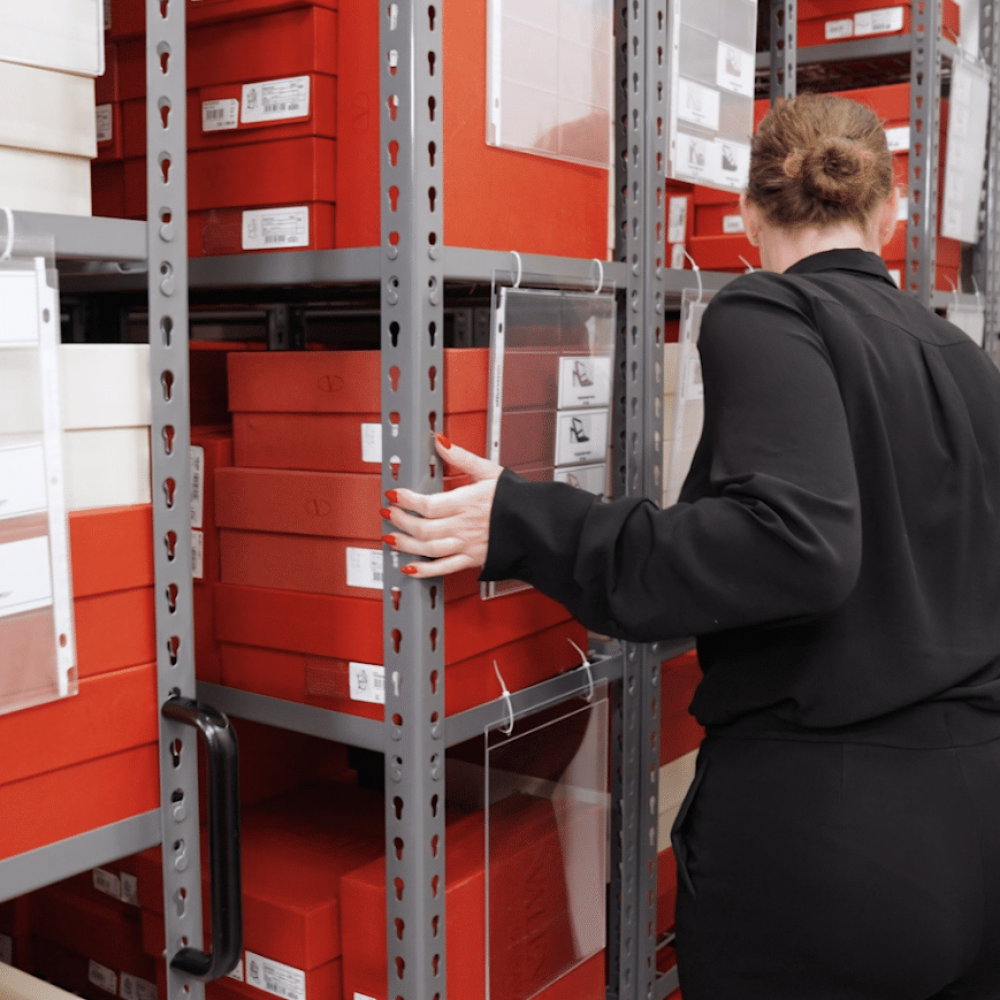Whether you’re managing a retail stockroom, organizing inventory in a healthcare facility, or maximizing space in an automotive dealership, one thing is certain: efficient storage matters. Choosing between mobile shelving and static shelving is more than a matter of preference, it’s a strategic decision that can directly impact productivity, scalability, and your bottom line.
So, what’s the difference between the two? And how do you know which shelving system is right for your space, workflow, and future plans?
In this blog, we’ll dive into the pros and cons of mobile and static shelving systems, highlight key use cases, and help you determine which solution will work best for your specific needs.
Static shelving is the traditional shelving system found in many facilities. This is fixed metal racks that stay permanently in place. These systems typically bolt to the floor or install along walls, creating set aisles between each unit.
While static shelving is simple and reliable, its biggest limitation is its fixed footprint. Because each row requires its own aisle for access, the system can consume more space than necessary, especially in compact environments.
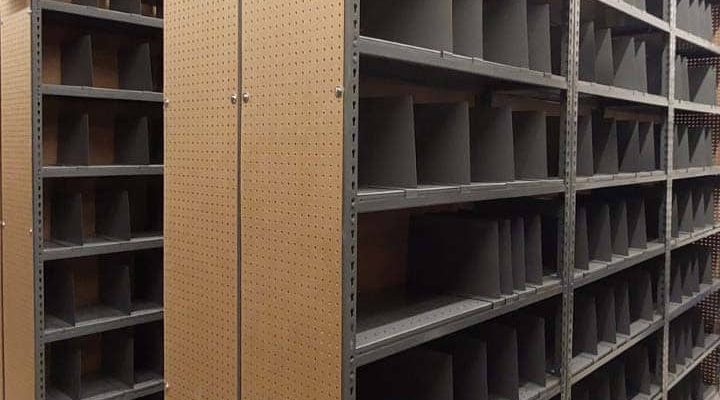
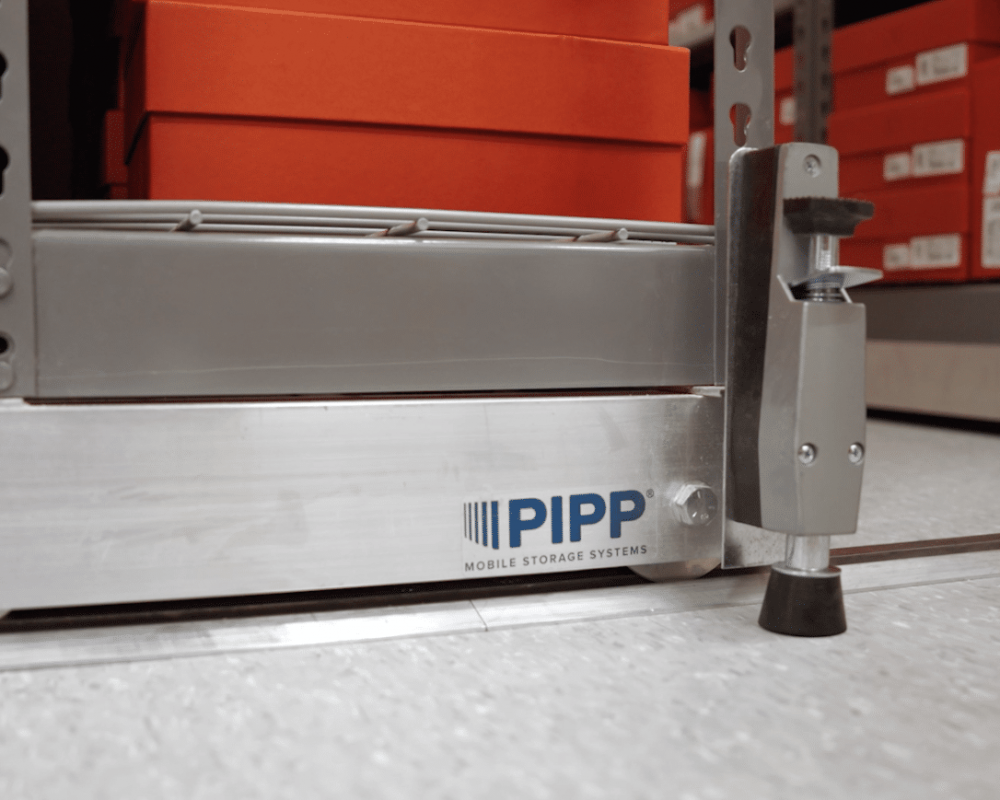
Mobile shelving, also known as high-density mobile storage, is a modern solution designed to eliminate unused aisle space. Carriages guided on tracks support these units, allowing users to open and close access aisles as needed. With only one movable aisle required at a time, you can dramatically increase your storage capacity, often up to 80% more than static systems in the same space.
You can operate mobile systems manually or mechanically (with hand cranks) depending on your facility’s needs and size.

Choosing between mobile and static shelving isn’t always black and white. Every facility has its own set of requirements, and what works for one operation might not be ideal for another. Here are a few questions to help guide your decision:

If your facility is tight on square footage or operating in a high-rent zone, mobile shelving units give you the power to maximize every inch. Static shelving may be sufficient if space is abundant and growth isn’t a primary concern.
Mobile shelving can increase usable space by up to 80%, allowing you to store more inventory, reduce expansion costs, or even avoid the need for relocation altogether.
Static shelving provides a cost-effective, quick-to-install solution that is well-suited for operations with limited budgets. However, if you view your shelving system as a long-term investment, mobile shelving often delivers a better return on investment (ROI) through space savings, efficiency, and scalability.
If your multiple team members need to access inventory simultaneously, static shelving may offer faster and more flexible access. Mobile systems, while more space-efficient, could limit access to one aisle at a time, depending on the setup, which may cause a bottleneck in some environments.
That said, you can strategically lay out mobile systems to minimize workflow disruption, while mechanical systems significantly speed up access.
If you’re planning to expand your operations, mobile shelving provides the flexibility and storage capacity to grow without requiring additional floor space. Static shelving, on the other hand, is harder to scale unless you physically expand your footprint.
Designers equip many mobile shelving systems with locking mechanisms, enclosures, and even environmental controls. This is ideal for industries that handle sensitive or regulated materials, such as cannabis, pharmaceuticals, or archival documents.
It’s important to note that choosing between mobile and static shelving doesn’t have to be an all-or-nothing decision. In fact, many facilities achieve success by combining both systems to strike the optimal balance between maximizing storage capacity and maintaining an efficient workflow. Mobile shelving is ideal for high-density storage needs, while static shelving can be strategically placed for frequently accessed or fast-moving inventory. By blending the two, you can create a layout that supports both operational efficiency and optimal space utilization.
| Feature | Static Shelving | Mobile Shelving |
| Initial Cost | Lower | Higher |
| Space Efficiency | Moderate | High |
| Scalability | Limited | Excellent |
| Installation Time | Quick | Quick |
| Workflow Speed | Fast (multi-user access) | Fast (single aisle access) |
| Customization | Basic | High |
| Security | Moderate | High |
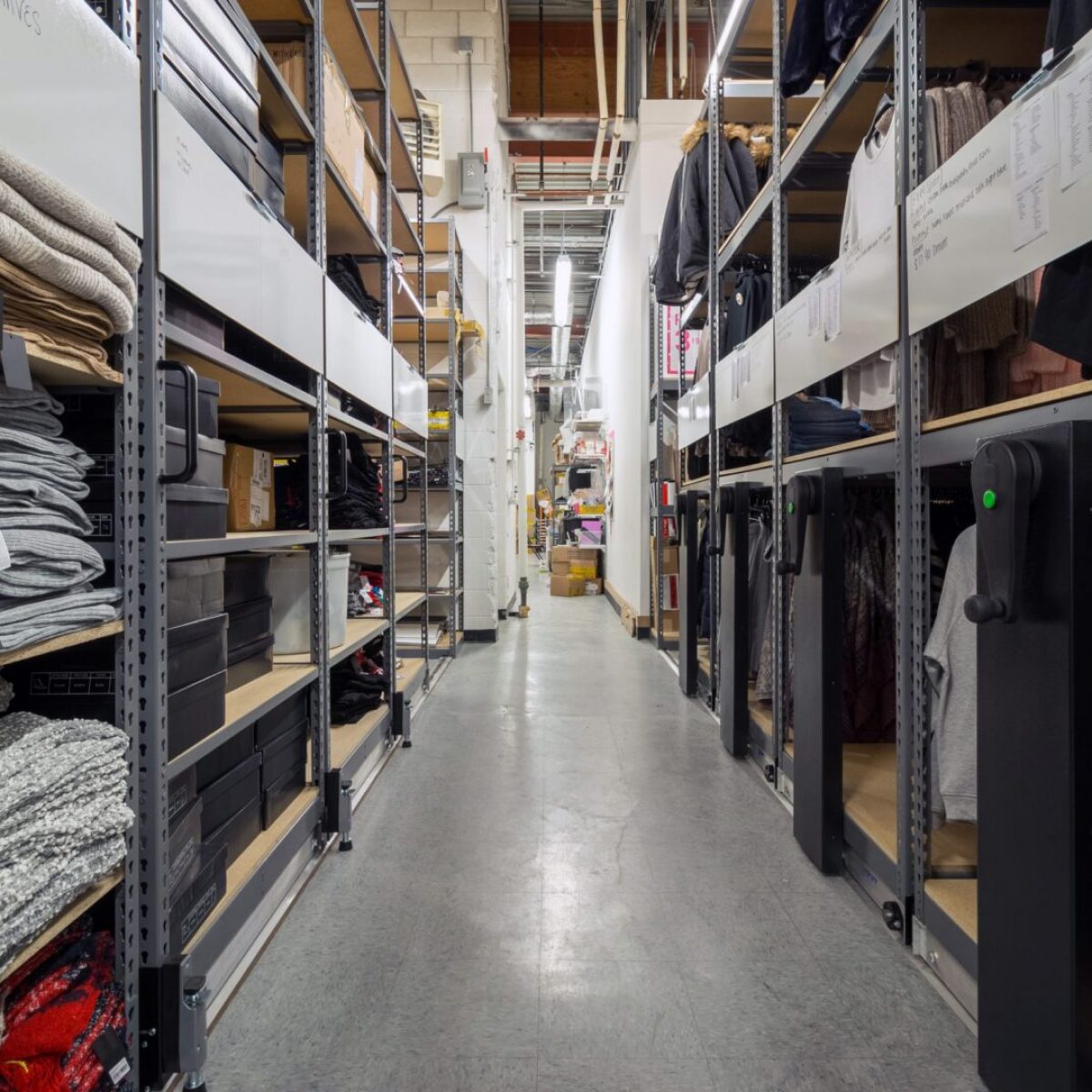
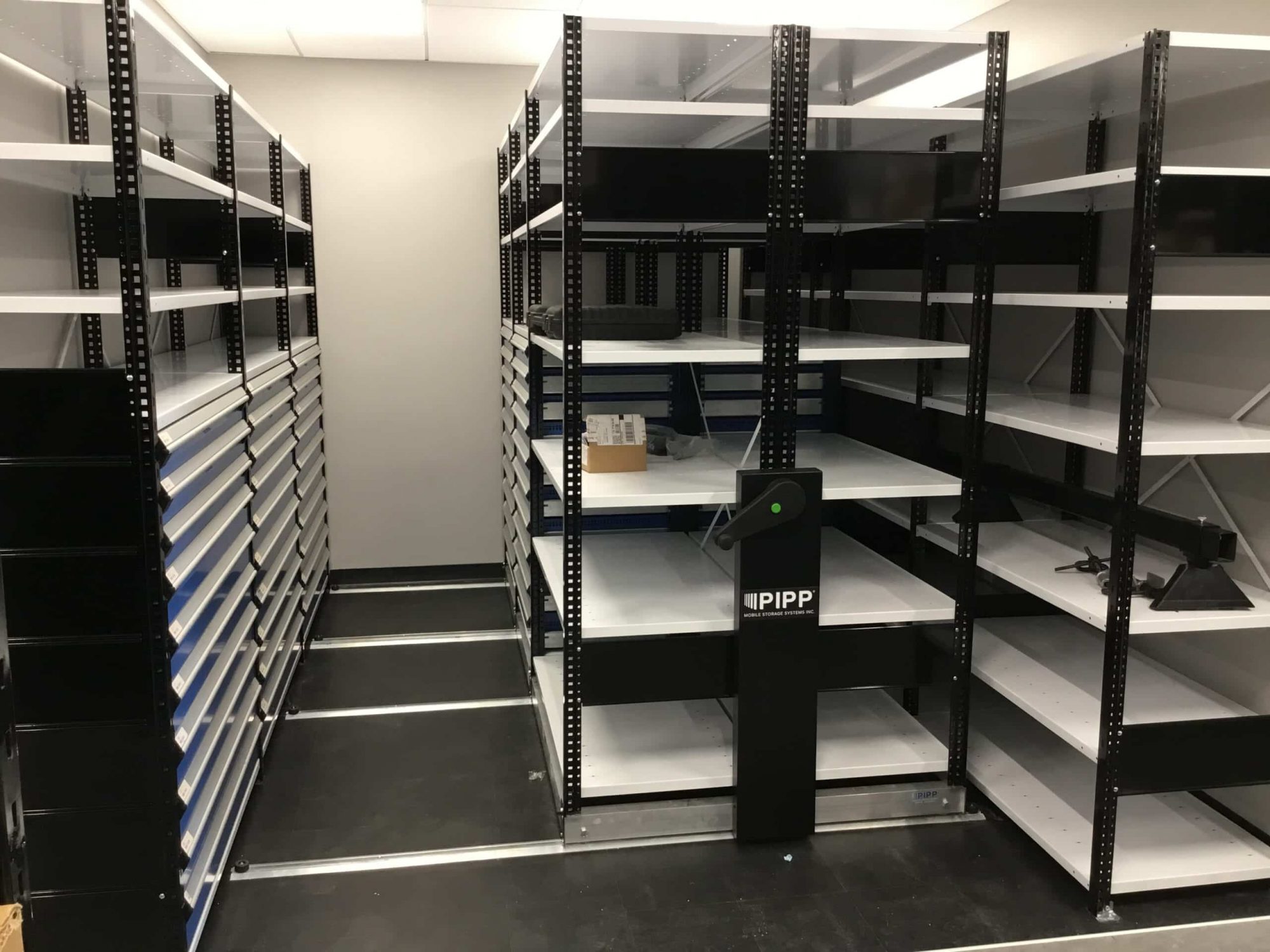
Retailers, especially those operating in urban areas, are often limited by backroom space. Mobile storage systems enable these businesses to store more inventory without sacrificing sales floor space, allowing them to maintain a steady stock and streamline restocking processes.
Static shelving may be suitable for smaller retail locations with predictable inventory levels, but if you’re scaling, adding SKUs, or preparing for seasonal fluctuations, a mobile system could offer the edge you need.
There’s no one-size-fits-all solution when it comes to storage; your shelving system should match your space, workflow, and vision for growth.
At Pipp Mobile, we specialize in helping businesses make the most of their space. Our team of storage experts can assess your current setup, understand your goals, and design a custom shelving system tailored to your specific facility needs.
Let’s design a smarter storage solution together.
Contact us today to schedule a free consultation or request a quote.
